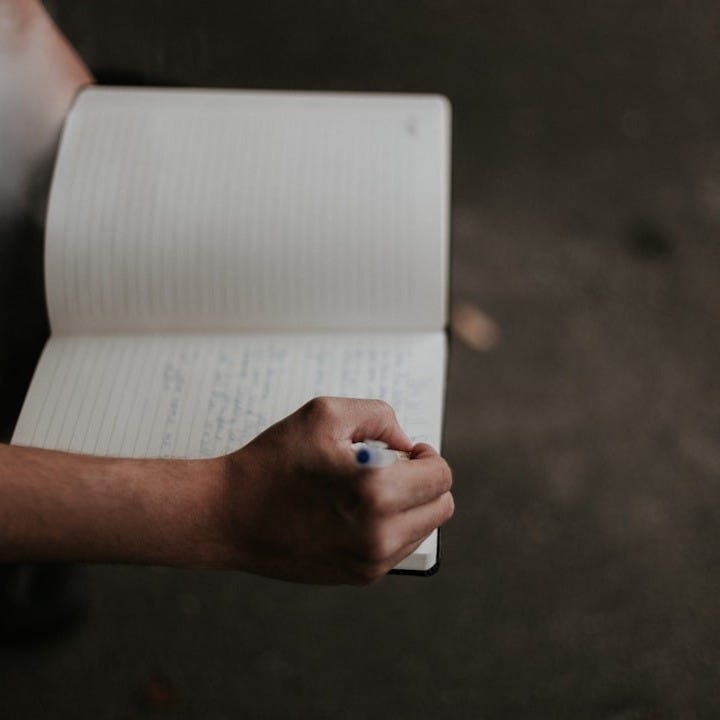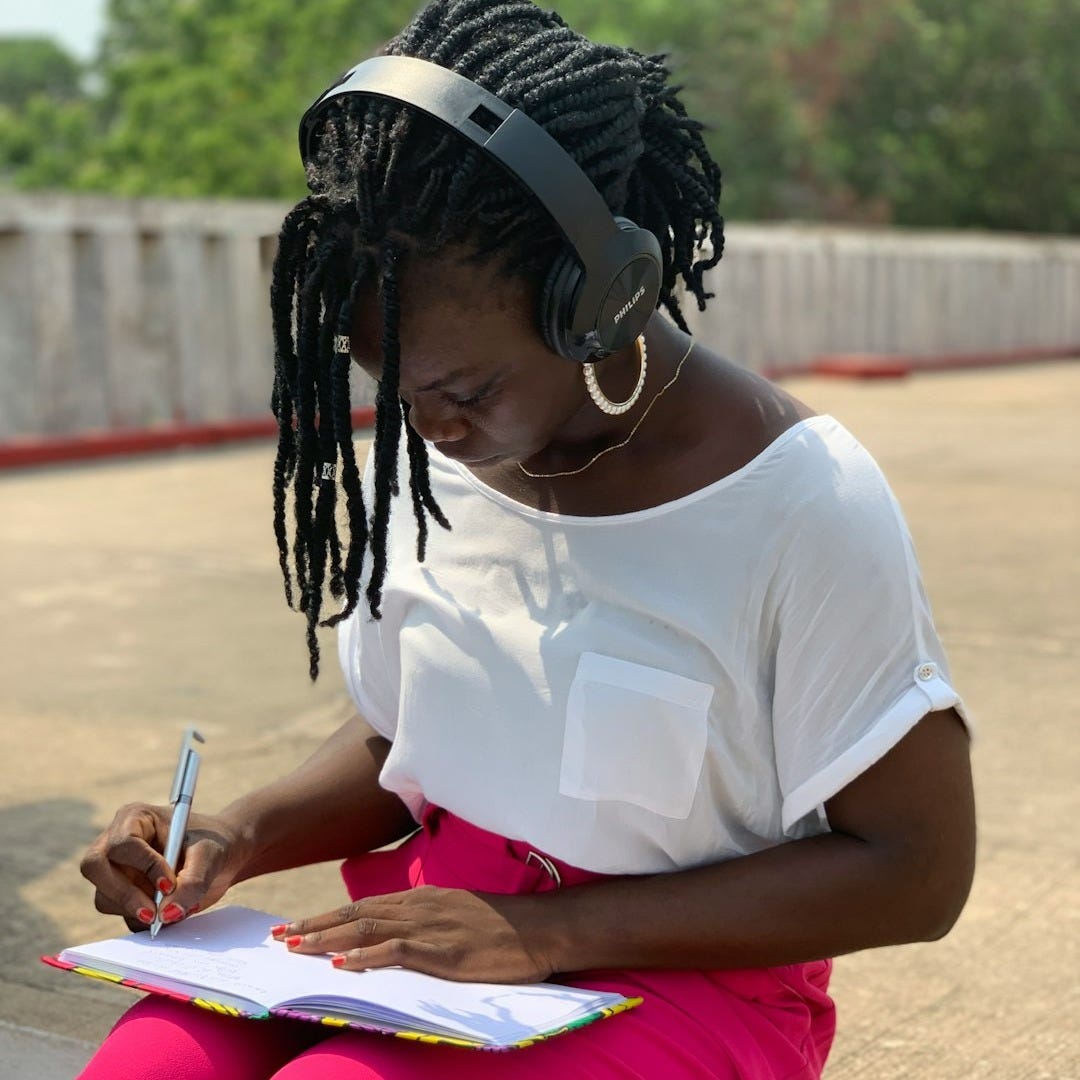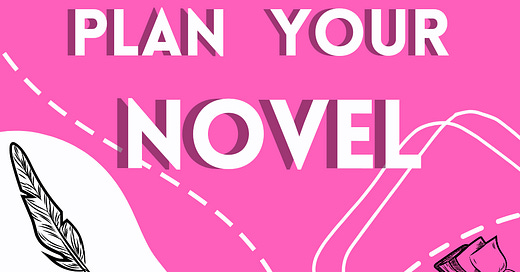Intro
Before you can write a novel you need to know how to plan a novel. Writing a novel can a whole lot of fun, and incredibly rewarding. But, it can also be a struggle. It's best to avoid that struggle as much as possible by having a plan.
Having a plan for your novel, not only keeps you on a direct path but helps cut down the amount of time you'll spend doing things in the wrong order or flying way too high to keep up with yourself.
I'm not talking about an outline, in case you're confused. An outline is for the more micro details in your novel, and without an idea of your story, let alone a plan, starting one of those would be very frustrating, or make you drop your idea altogether. I say this from experience. If you would like to know more about the two let me know in the comments.
Requirements
Planning a novel requires several steps, and they are:
Brainstorm
Characters
Theme & Setting
Jot it down
Get Inspired
Research (your story genre, and tools etc)
Writing place/schedule (Decide your tools & get organized)
Refine Your Plot Outline
Write
Revise
Let's take them one at a time.

Brainstorm
This is the first and, I believe, one of the most crucial steps. Brainstorm things you can write about, an idea, a concept or even a theme. Doing this can get help you think about what your novel should be about. Think about a movie you watched recently or sometime in the past, a book you read, a scene you watched happen in real life, events of your own life, or even scenes that only happened in your head.
These can provide great ideas for your novel, its characters, and even settings and themes. You can be selective about it, and pick just a few points or you can mash them all up. At this stage, just run with the wind, and let it carry you.

Characters
Now you've gotten a sense of what your story looks and feels like, time to flesh out your characters. You've already given them some thought, now time to give them a little bit more. Shape their physical features, their mannerisms, likes & dislikes, etc.
Keep in mind that, yes, you can change your characters anytime, whenever and however you like. Though, you have to stick to the traits you have chosen during the final revision of your characters. You don't want a situation where your character's eyes are blue on page 34 when they were brown in page three.
This part is where you figure out who these characters are, how they look, how they act, and their back story:
Your Protagonist/main lead
Your sub-protagonist (Friend/love interest)
Your Antagonist
Your sub-antagonist
Your minor characters
If you'd like some help, here's a free Character Template.

Theme & Setting
Where and when is your novel taking place? Is your story set on earth, alternate earth, or even on earth at all?
Basically, world building. Having a theme and setting is an integral part of your novel, without it your characters interact in a void or don't ever interact at all, and your story wouldn't make sense most of the time.
As much as it is world building, it's also back also theme exploration. What situation are you portraying? These are some of the things you have to think about.
The characters alone can't tell the story, everything around them also has to play a part, like the props on a stage, and like cues in a play. They all have to work together to tell the story, intrigue the minds of your audience and invoke their emotions.

Jot It Down
You can write down what you currently have in your head, so you don't forget it. Your characters, some semblance of their backstory, their main features, the theme, and setting of your story. At this point, you should have a main idea of what your story should be about, how your characters look, and the world they live in. Maybe even a temporary blurb.
This is where those several notebooks of yours will come in real handy (I know you have them). Use your notes app if you're more digital inclined.
Personally, I use both traditional and digital tools. I use Zoho notes, Notion and my physical notebooks.

Get Inspired
As stated above, you should have a main idea of your story should be about, your characters, and a vague idea of your theme and setting. Go out into the world, whether physical, or digital and get some inspiration. Images, quotes, videos, writing prompts, audios, even other books, tv shows, movies, scripts, past events, and even people can be really helpful.
I highly recommend Pinterest. It's great for getting loads of inspiration and it's so fun! Here's a link to my Pinterest page where you can find curated pins and boards to get you started so you don't get too lost.
Instagram is also a good place to get inspiration. From fashion posts, to reader, and writer reels, art, stories, and tips, you can find anything. Hop over to my Instagram page to find some tips and inspiration. If you're more of an audio person, have a listen to some playlists on your music app and on YouTube.

Research
Every legitimate piece of writing, whether it is fiction or nonfiction needs some level of research. Like every other step here, this is important and MUST NOT be skipped. In this case, you are going to need to do some research on the following:
Genres, specifically your book's genre/s.
Your target audience
Your story’s style and category. This is something that i don't see talked about often.
If you are comfortable using your real name or a Pen name
The tools you are going to be using
How long your novel is going to be.
Aspects of your story that deal with
the past or present of real world scenarios,
different locations,
gender,
sexuality,
different and or deeper aspects of cultures, societies, social norms, laws, mythology,
marginalized communities,
trauma,
different life experiences that you may or may not have gone through on different levels.
How to describe things, so you are giving your readers good visuals but not too many words.
How to be respectful, so you don't get cancelled. (Certain manhwas, and romance novels come to mind. I'm still reeling from squirrels tail hair, highlighted necrophilia, and flipping KKK romance. Like TF! This includes bigotry and any -isms)
What's going on in the writer space.
The Do’s and Don’ts with your story
how to interact with other writers and readers inside and outside of your story’s genre.
Who to get along with,
lessons to learn from,
who and what to AVOID. Especially if you are below 18 or 19 years of age, a first time writer or been away from the community for a while.
How things have been done in different genres and tropes. And what YOU are going to do with that information. (It's your story after all)
You can do research online (search engines and online forums), your local library, Archives, and social media (Pinterest, Instagram, TikTok etc).
Sounds like a lot, and I'm not going to lie, it is a lot but it will be incredibly useful in the long run, especially if you can keep it all organized. I recommend Notion, Fortelling, and a trusty thick-cover notebook.
Once you have done your research, you’ll have a broader sense of what your story is about.
Writing Place/Schedule
Once you have done your research, and gathered your tools and your novel’s draft outline, you need to find a place where you can sit down and write. It can be in your room, another room in the house/apartment like a workroom or even the bathroom (as long as no one else needs it). Just a place where you can have some peace to yourself, your ideas, and what you are writing and writing with.
I strongly suggest you get headphones, earphones, if you can. It helps get those ideas going and blocks out the rest of the world.
As for the writing schedule, that's trickier but it needs to be done. Life tends to get in the way at times… but it is important to Set Out Time To Write. It can be for a few minutes to a few hours of each day. It can be early in the morning, during your lunch break, or at night. You should make time everyday or maybe a few days in the week, just make sure you get something down.
Here’s how to look at it, You have an estimated number of words you need to reach, right? Great. Now cut that huge chunk into smaller pieces, take each piece and give yourself a reasonable deadline, then strive to reach your goal before the deadline hits.
Breakdown your work into manageable tasks, so you don't feel overwhelmed.

Refine Your Plot Outline
To cook, you need a recipe. The recipe here is your Plot Outline. By the time you reach this point, your plot should be clearer, and your outline should have all the big and small events and details of your story. From the main plot points to the little dots that connect them all together. Key plot points, twists, climax, all of it.
But there are always those pesky grey areas, don't fret! They clear up as you go. However, having a basic structure and a semblance of organization in mind is important, this is where you get serious with all your research, resources and organizing power. A plot has different parts, some say, four, five or six parts. For the sake of not missing anything, let's just say that there are six:
The beginning (exposition)
Conflict
Rising action
Climax
Falling action
Resolution.
There are many tools and methods for plot outlining. Common methods include the snowflake methods, mind mapping, the three-act structure, five-act structure, and Freytag’s Pyramid.

Write
Everything is prepared, now time to do the job. Write. The words aren't going to appear right in front of your eyes just like that, time to put in the real work.
Getting the first words down is always the hardest part but ironically, it is also the easiest. Don't let that blank page intimidate you or persuade you to procrastinate. Once you start, you'll find the words just flowing out. Don't be too critical at first, just relax, go with the flow and see where it takes you.
Half the time you'll find yourself not just following your outline anymore but writing an incident report about your characters. In no time at all you'll find you've gone half the page or even started page two. The important thing is to get your story written down, and ready for the next part.
Revise
Ok, this is the last part. You've written your story, wonderful! But you can’t hit publish or send a query to an editor just yet. You have to revise your work, make sure it is free of any errors, and make sure it makes sense.
Unless you are writing episodic fiction, where you release a couple of chapters on a weekly or monthly basis, I don't advice revising your work until after your entire first draft is completed. Because,
One, it can lead to Perfectionism, which can set you back months or even years from your goal.
Two, it can make you feel overwhelmed. Imagine finishing chapter one of your story, and proceeding to edit it immediately after. You'll be thinking about how many mistakes you've made and what to write next, which leads to the third consequence.
Imposter Syndrome. Or even worse, Writer's Block!
It's important to take a step back from your finished draft, and come back later with fresh eyes.
A couple more things to do are:
Plan for more drafts.
There could be a second, third, or even fourth draft you make of the same story. It's a process, that needs to happen to ensure your novel is good enough for readers, and good enough for you to feel proud of.
Get Feedback/Critique from others
Getting feedback and or critique from others is a good way to get different perspectives about your story. By others, I mean, other writers you are familiar with and above all, trust. There's also Beta and Alpha readers, and even your editor, if you can pay for them.
(In this age of unethical use of artificial intelligence, fraud, copyright theft, and piracy, before having anyone read your work before it is officially out in the world you should insist and make sure they sign an agreement. It is a MUST. If possible get a third party involved.) This isn't an attempt to scare you, it's advice to be cautious.

Conclusion
These are the steps you need to take to plan your novel and keep yourself safe while you're at it.
There is no one-size-fits-all approach. Take these steps and adapt them to your personal writing style and the needs of your story as you see fit. See you in the next post.
Best of luck and Happy writing!






